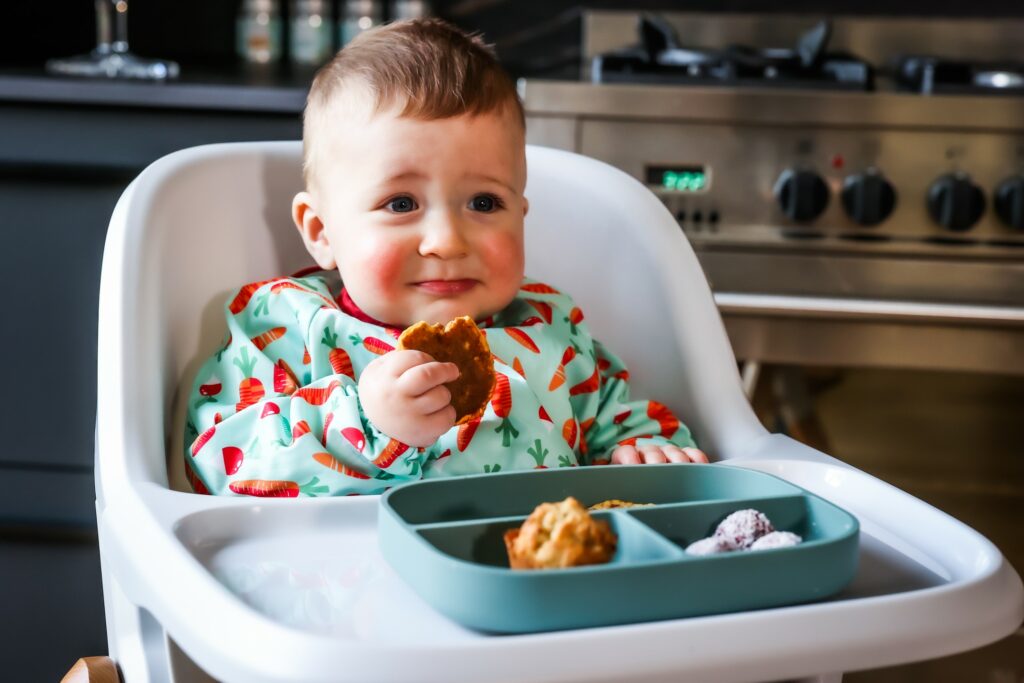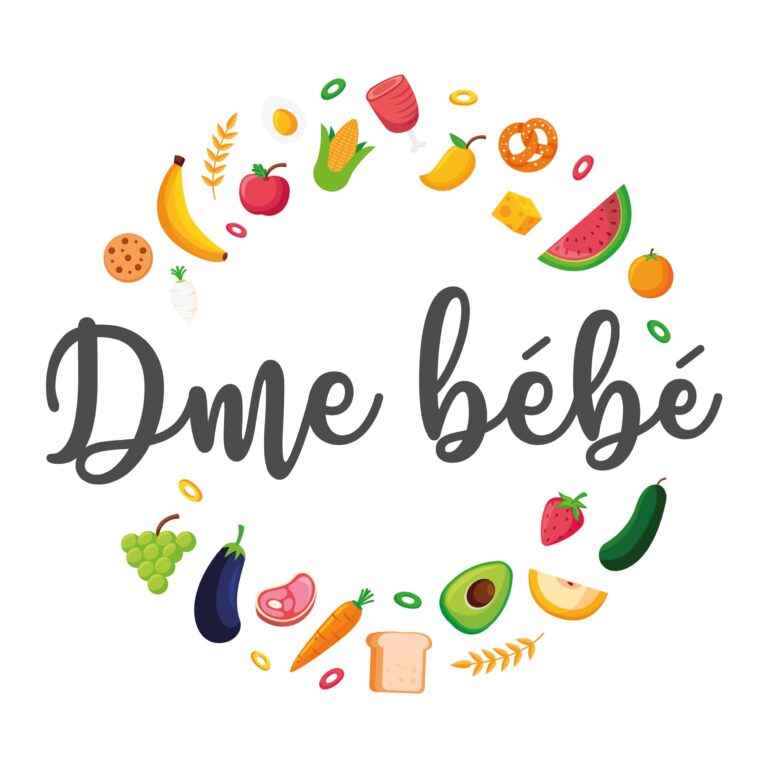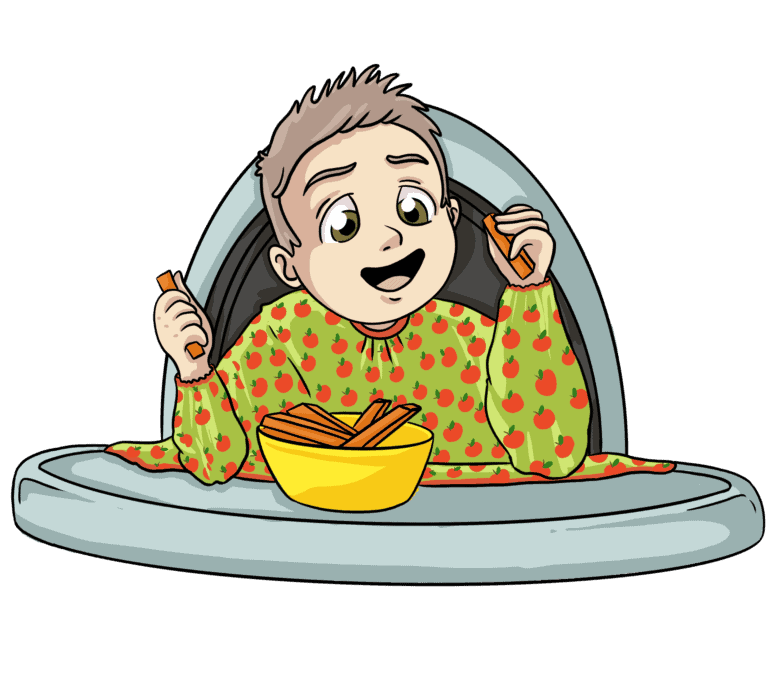In diversification led by the child, we will find three main stages that will mark baby's evolution.
The ages mentioned below are given as an indication, each baby being different and evolving at their own pace. Your role? Observe your baby to continue meeting their needs!

Discovery phase (6 to 7 months)
This period usually lasts a month. During this phase, baby eats little or not at all (and it's ok!).
It is the period of food discovery. We focus on stimulating the senses : we offer meals with different colors, textures, shapes and odors to attract and stir up baby's curiosity.
If you want to know "in what format to offer baby food" go here .
At first, baby observes, touches and tries to bring food to his mouth. You may have the impression that he plays more than he eats . But do not bother, between 6 and 8 months the milk covers more than 80% of its energy needs . So, even if baby eats little, even almost nothing, his energy needs will be covered.

In addition, it should not be forgotten that the BLW is focused on food discovery independently . The goal is to let baby go alone towards what he needs and in the quantities necessary for his body. Your role? Offer quality, healthy and varied foods .
Want to know how to create a "balanced baby plate in BLW ?" », Go here .
During this phase, we advise you to stick to it for fruit and vegetable sticks or fairly simple recipes such as: blinis , small-peas dumplings ,…
Development phase (from 7 to 9 months)

Baby's food interest gradually increases . Baby carries food to his mouth more and more easily and he now knows how to grasp them with his three fingers (inch, index, major) even if he still lacks a little precision. It's time to develop your recipes a little more . We invite you to take a look at our baby recipes from 6 months .
The meal takes place faster and baby is less tired at the end of the meal.
Improvement phase (from 9 to 12 months)
Baby now knows how to make the pliers (catch food between his thumb and index) and he controls her better and better. Baby's masticatory movements become repeated and we can therefore offer less tender textures . He will also take more and more fun eating his meals.
This is also the moment when you can start introducing the fork by pricking the food and the spoon by pre -filing it. You will let baby bring them alone to his mouth.

Everyone has their own pace
We will never repeat it enough: each baby at their own pace and its evolution . Put yourself to your baby and adapt to his needs! Remember that nobody likes to live in frustration, even baby! So remember to offer him songs that will be adapted to him and to let him evolve at his own pace .
The pressure should not be part of the diversification led by the child . This must remain a pleasure for both the parent and for baby.
Photo: © Moon and the other


5 responses